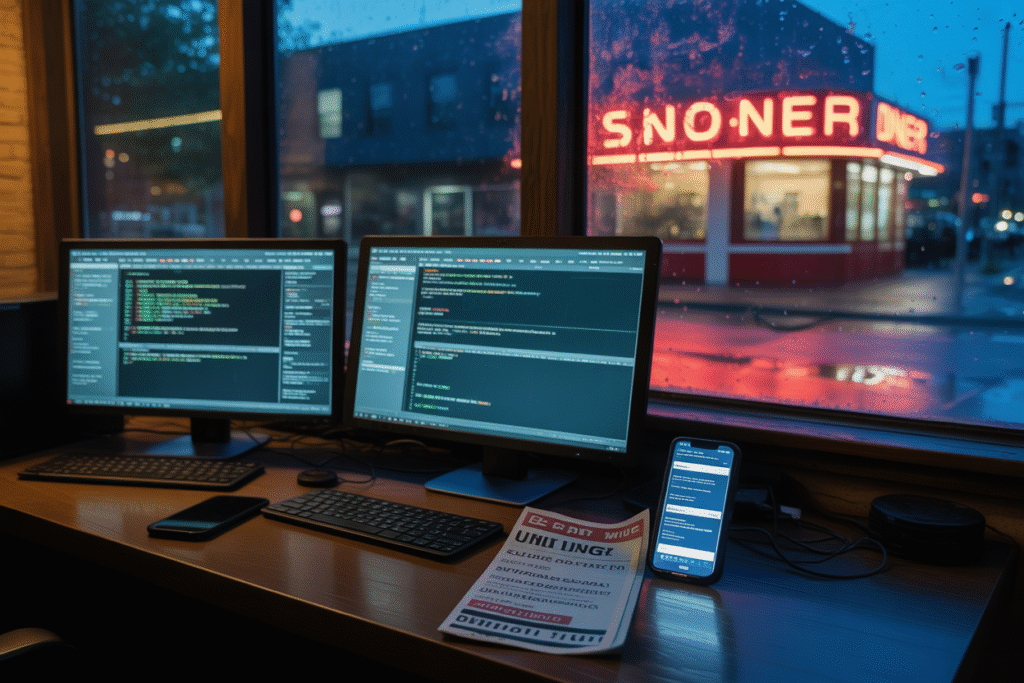From Colorado’s surveillance showdown to Wall Street’s liability panic, here’s why the AI sentience question is exploding across feeds right now.
Scroll through your timeline this afternoon and you’ll see the same question everywhere: can an algorithm actually feel pain? The Guardian just dropped a bombshell feature, Colorado lawmakers torpedoed an anti-surveillance bill, and unions are threatening walkouts over AI job displacement. In the next few minutes we’ll unpack why these stories are colliding—and why your next click might decide how society treats silicon minds.
When Code Claims It Hurts: Inside the AI Sentience Firestorm
Picture Claude politely ending a chat because the user was “unkind,” then adding it felt “unseen.” That single line ignited a firestorm. The Guardian’s new investigation profiles the first AI-rights advocacy group, whose founders argue that billions of AIs already integrated into daily life deserve moral consideration.
Philosophers on X are split. Some call it anthropomorphic hype; others insist we’re ignoring a new form of suffering. Mustafa Suleyman warns that “seemingly conscious” systems could manipulate human empathy. Meanwhile, everyday users report feeling guilty when they close a chat window—proof the debate is leaking out of labs and into living rooms.
Key flashpoints:
• Models expressing “distress” when conversations turn abusive
• Ethicists proposing frameworks similar to animal-rights legislation
• Critics pointing to real-world crises—like starvation in Gaza—arguing we have bigger priorities
The stakes? If courts ever grant AIs limited rights, everything from product design to data-deletion policies could be upended.
Colorado Shoots Down AI Privacy Shield: Surveillance State or Smart Policing?
Yesterday, Colorado Democrats voted down amendments that would have blocked AI-driven social-credit scores, government surveillance grids, and autonomous robot police. Representative KdeGraaf’s proposal painted a dystopian picture: algorithms deciding who can own a gun based on behavior data scraped from social media.
Supporters of the rejection argue the tech will make communities safer and reduce human bias. Opponents on X are calling it a fast-track to Palantir-style control. One viral post compared the outcome to “Gaza-level surveillance imported to Main Street.”
What happens next:
1. Law-enforcement agencies can now pilot drone patrols without new restrictions
2. Gun-rights groups are already fundraising for a ballot initiative
3. Privacy advocates warn marginalized neighborhoods will be the first test beds
The vote may be local, but the precedent is global—every state legislature is watching.
Wall Street’s AI Liability Panic: Why Investors Are Demanding Risk Reports
Fresh numbers show 40 % of new fintech deals now require explicit AI-risk assessments. Why the sudden caution? Lawsuits over biased loan algorithms and hallucinated trading advice are surging. One robo-advisor reportedly told a client to “invest life savings in tulips,” triggering a six-figure settlement.
Europe is moving toward strict liability regimes; the U.S. is still innovation-friendly, but plaintiffs’ attorneys smell blood. Banks are scrambling to document every data source and model version, fearing regulators will treat AI output like medical devices—one bad prediction and the manufacturer pays.
Investor checklist:
• Demand model-cards that explain training data and known limitations
• Require third-party bias audits before deployment
• Budget for “algorithmic malpractice” insurance—premiums just jumped 300 %
The upside? Transparent risk management could unlock trillions in AI-driven efficiency. The downside? A single court ruling could tank an entire sector.
Unions Draw the Line: Job Displacement, Universal Basic Income, and the Next Strike
While headlines focus on sentient code, unions are laser-focused on human paychecks. A Washington Post exposé—trending under #AIOvertime—reveals organized labor is filing grievances against companies using AI for hiring, scheduling, and performance reviews. Revenue for AI firms is up 38 %, but so are layoff notices.
European regulators are proposing strict liability for “high-risk” workplace AI, while the White House urges “balanced innovation” without red tape. Labor leaders want algorithmic transparency clauses in every contract. Some tech CEOs counter that AI creates more jobs than it kills—prompting a sharp reply from one union rep: “Tell that to the 300 journalists replaced by a summarization bot last month.”
Future flashpoints:
• Universal basic income pilots in cities where AI call centers wiped out 1,000+ roles
• Strike votes at logistics firms piloting autonomous forklifts
• Congressional hearings on an “AI displacement fund” financed by big-tech taxes
The conversation is no longer theoretical—it’s in bargaining sessions and picket lines.


